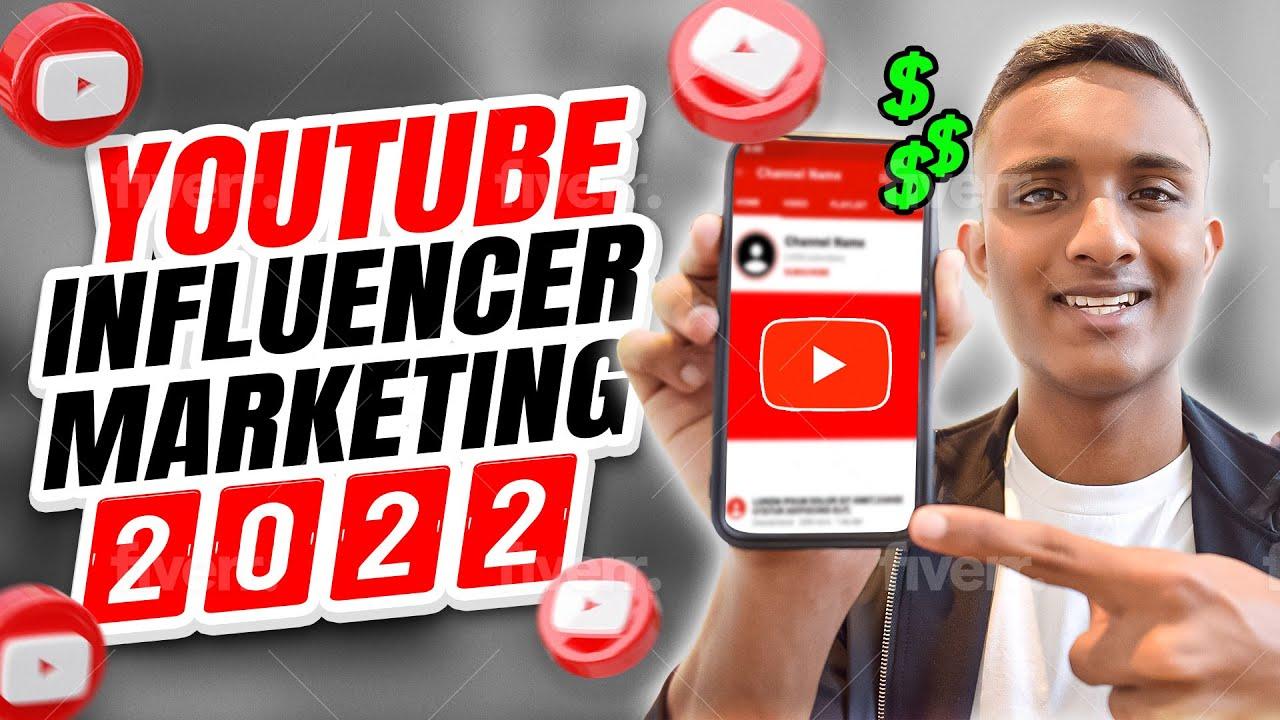
In the ever-evolving landscape of digital media, YouTube has emerged as a powerhouse platform, fostering a new generation of influencers whose reach extends far beyond the confines of traditional advertising. From beauty gurus to gaming aficionados, these content creators wield important influence over their dedicated audiences, shaping perceptions and driving trends. However, as the lines between entertainment and commercial promotion blur, the legalities surrounding influencer marketing have become increasingly complex. In this article, we embark on a journey through the intricate maze of regulations, guidelines, and best practices that govern YouTube influencer marketing. Whether you’re a budding influencer, a seasoned brand, or simply curious about the dynamics at play, we’ll unpack the essential elements that ensure transparency, authenticity, and compliance in this vibrant digital ecosystem. Join us as we navigate the legal landscape of influencer marketing and uncover the key considerations that can help you thrive in this modern arena.
Understanding the Regulatory Landscape of Influencer Marketing
The world of influencer marketing, especially on platforms like YouTube, operates within a complex framework of regulations designed to protect consumers and maintain fairness in advertising. Federal Trade Commission (FTC) guidelines require that influencers disclose any material connections with brands, ensuring viewers are aware when content is sponsored. This transparency not only builds trust with audiences but also mitigates potential legal repercussions for influencers and brands alike. Key aspects to remember include:
- Clear Disclosures: Influencers should use hashtags like #ad or #sponsored, prominently featured in their posts.
- Truthful Promotion: Claims made about products must be accurate and substantiated.
- Avoiding Misleading Content: Content should not mislead consumers about the nature or effectiveness of products.
Furthermore, different countries may impose additional regulations that influencers must adhere to when marketing on international platforms. Such as, the European Union has stringent rules surrounding consumer protection, emphasizing the need for clear advertising practices. To provide a clearer picture, here’s a comparative look at how various regions approach influencer marketing regulations:
| Region | Key Regulations |
|---|---|
| United States | FTC guidelines on disclosure and honesty in advertising. |
| European union | GDPR compliance and strict advertising regulations. |
| Australia | Australian Consumer Law mandates truthful advertising practices. |

Best Practices for Compliant Sponsorship Disclosures
When navigating the intricate landscape of influencer marketing on YouTube, obvious sponsorship disclosures are crucial for maintaining trust and compliance with legal guidelines. Brands and influencers alike should adhere to a set of best practices to ensure that sponsorships are clearly communicated to the audience. This includes prominently labeling sponsored content at the beginning of videos, using clear terms such as “Sponsored,” “Paid Partnership,” or “Ad.” It’s essential that these phrases are easily visible and understandable, avoiding vague terms that might confuse viewers. Additionally, placing disclaimers both in the video and in its description enhances clarity, solidifying the authenticity of the promotional message.
Moreover, collaborating with legal professionals who specialize in advertising regulations can provide valuable insights into compliance requirements. A few key practices to consider are:
- Regularly reviewing and updating disclosure practices to stay aligned with evolving laws.
- Training influencers on the importance of transparency and how to correctly disclose sponsorships.
- Utilizing tools and features provided by platforms like YouTube to aid in clear disclosures.
Below is a simple guideline for different types of sponsorships and their recommended disclosures:
| Type of Sponsorship | Recommended Disclosure |
|---|---|
| Paid Promotion | Sponsored |
| Affiliate Links | Affiliate Link |
| Gifted Products | Gifted |
Implementing these strategies not only fosters trust between creators and their audiences but also safeguards both brands and influencers against potential legal repercussions.

Balancing Authenticity and Transparency in Your content
In the dynamic world of influencer marketing, authenticity and transparency serve as the bedrock for building trust with your audience. Influencers must ensure that their content resonates with their followers while remaining genuine and relatable. This means leaning into their unique personality and voice, which can result in more meaningful engagement. To achieve this balance, creators can adopt strategies such as:
- Sharing personal stories: Relating experiences that connect with the product or service promotes sincerity.
- Disclosing partnerships: Being upfront about sponsorships enhances credibility.
- Engaging with followers: Responding to comments and messages fosters a sense of community and openness.
Though, while striving for authenticity, it’s crucial to avoid the pitfalls of misleading content.The line between genuine endorsement and blatant promotion can sometimes blur, leading to skepticism among an audience that values honesty. Influencers should ensure that any products they promote are not only in alignment with their personal brand but also meet the expectations of their followers. A clear framework for selecting partnerships can include:
| Criteria | Description |
|---|---|
| Brand Alignment | Ensure the brand’s values resonate with your own. |
| Audience Fit | Choose products that cater to your followers’ interests. |
| Transparency Standards | Commit to disclosing sponsored content clearly. |

Building Trust: Navigating Contracts and Partnerships with Brands
Establishing solid relationships with brands requires not just charisma, but a well-structured framework of contracts that safeguard both parties’ interests.When entering agreements, it’s essential to be transparent about expectations, deliverables, and compensation. A well-crafted contract should include critical elements such as:
- Scope of Work: Clearly outline the specific tasks and content to be delivered.
- Payment terms: Define the compensation structure, including timelines and payment methods.
- Intellectual Property: Establish who owns the content created during the partnership.
- Termination Clauses: Provide terms for ending the contract early if necessary.
- Confidentiality Agreements: Ensure that sensitive information is protected.
Building trust also involves understanding and respecting brand guidelines to maintain a harmonious working relationship. Influencers must navigate various legalities regarding advertising disclosures and ensure compliance with regulations, such as the Federal Trade commission’s (FTC) requirements. An effective approach includes:
| Action | Description |
|---|---|
| Full Disclosure | Clearly indicate the nature of the partnership in your content. |
| Honesty | Share personal opinions; audiences value authenticity. |
| Consistency | Maintain a reliable brand voice while adhering to guidelines. |
In Summary
As we wrap up our exploration of the legal landscape surrounding YouTube influencer marketing, it becomes clear that navigating these waters requires both knowledge and caution. The synergy between content creation and compliance is not simply a matter of adhering to regulations; it’s about fostering trust and transparency with your audience. Whether you are a brand seeking to connect with consumers or an influencer building your digital empire, understanding the legal framework is paramount to your success.
By embracing best practices and staying informed of the ever-evolving guidelines, you not only safeguard your brand but also contribute to a healthier ecosystem within the influencer community.In this dynamic digital age, let your creativity shine while ensuring that your partnerships are as solid as they are inspiring. With the right approach, influencer marketing can become not just a tool for promotions, but a bridge to authentic connections—one that respects both the creators and their passionate followers. As the landscape continues to shift, remember that compliance is not a limitation, but an chance to strengthen bonds within this vibrant digital marketplace. Happy navigating!